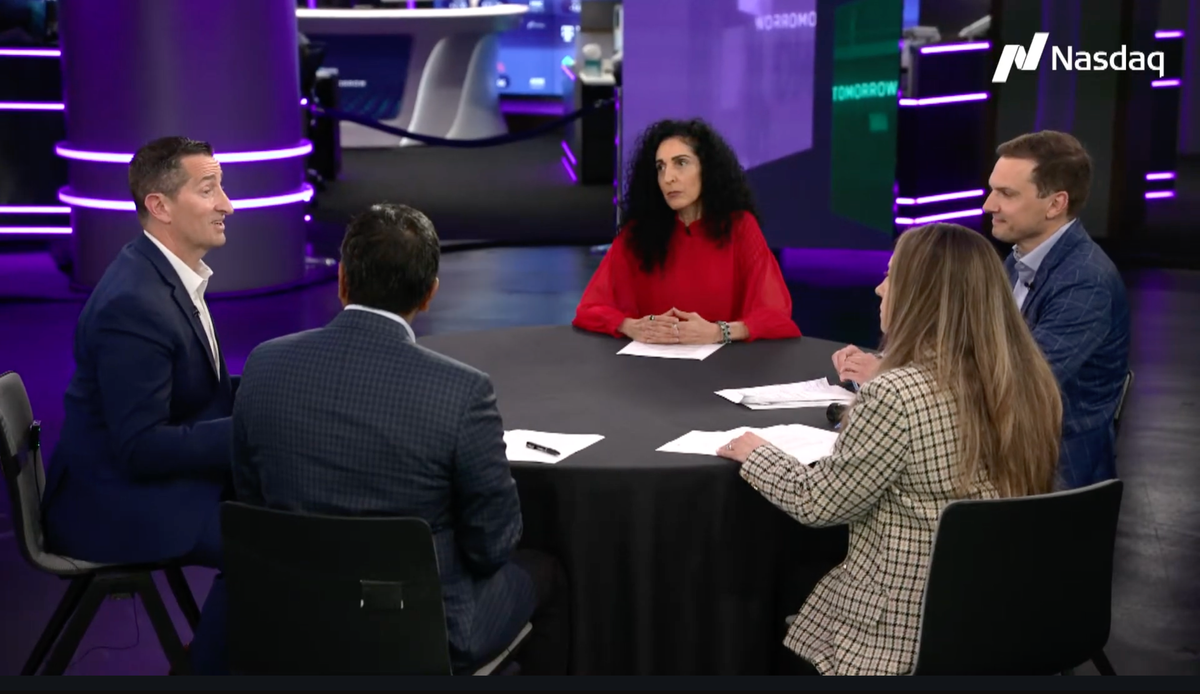Autonomous Negotiations Academy was discussed on Nasdaq TradeTalks
Autonomous negotiations was a hot topic on a recent episode of Nasdaq TradeTalks - and the Autonomous Negotiations Academy was mentioned as an example of why education in AI is key to spreading the benefits.

Autonomous negotiations was a hot topic on a recent episode of Nasdaq TradeTalks - and the Autonomous Negotiations Academy was mentioned as an example of why education in AI is key to spreading the benefits.
Nasdaq Global Markets Reporter Jill Malandrino was joined by Martin Rand, CEO of Pactum AI, as well as Dr. Merav Ozair, a professor and leading global expert in emerging technologies, Manish Sood, CEO of Reltio, and Scott Laliberte, Managing Director at Protiviti.
The main topic was 'AI Washing' and how to implement effective AI governance and compliance.
The term 'AI washing' is used to describe companies that mislead customers or investors by exaggerating the amount of AI in their business in order to appear more innovative than they actually are.
"AI washing is the concept of overhyping what you're doing and using the buzzword of AI," explained Scott Lalliberte. "While AI can be doing great things for you right now, we see a lot of companies overstating what it may be doing, if they are using it at all."
Dr. Merav Ozair made a key point that the basis of AI technology has been around much longer, just not necessarily under the label of AI - pointing to algorithmic trading as one example.
Impact matters
The guests agreed that what matters most is not the AI itself, but the impact of it.
"Everybody's concerned that they will be left behind if they don't jump on the AI bandwagon," added Manish Sood. "But, at the same time, converting it into something of business value that either accelerates the time to value or reduces the amount of burden you have to go through in terms of the human effort, those are the types of things that you need to apply AI to so that you can have some meaningful outcomes coming out of it."
"You can't just apply the technology," agreed Lalliberte. "It's what's the business problem that you are going to solve in order to achieve advantage, and which ones are well suited for AI."
At this point, Jill Malandrino pointed out autonomous negotiations as a good example for how AI can create efficiencies within the supply chain.
Martin Rand said that in order to see through the "AI haze", you need to focus on the tangible value that companies are providing, adding that some of the most innovative companies using AI in the most effective ways don't even talk about themselves very often as AI companies anymore - in the same way that companies that made it past the initial dotcom boom no longer defined themselves as dotcom companies.
Martin also pointed out the huge challenges that companies face when implementing AI - and large language models in particular - giving examples of chatbots that have harmed the businesses deploying them. This includes a car dealership whose chatbot agreed to sell a brand new car for $1 and an airline whose chatbot hallucinated an offer, which was then legally enforced.
If a company is using AI effectively and responsibly then they should have good explanations about how they handle these challenges.
The guests agreed that companies need to better understand their AI - and this is tied to effective governance.
"We see, number one, that it begins from training," said Martin Rand. "So we've invested into the creation of Autonomous Negotiations Academy to teach every single employee how to protect the customer against those dangers and how to focus on long term value."




